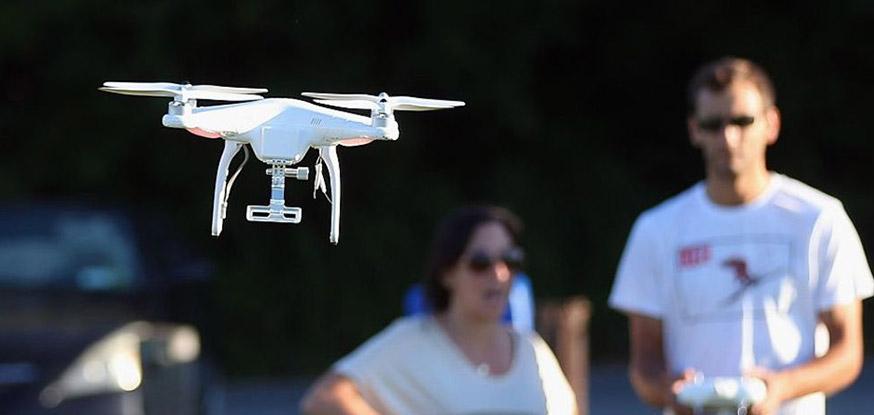The UK government says it will introduce drone registration and safety awareness courses for owners of small unmanned aircraft (drones). The policy will affect all those who own a drone which weighs more than 250 grams (8oz).
Drone maker DJI has spoken out in support of the new measures. However, details of how the registration process will pan out have not yet been released, and the Department of Transport said "the nuts and bolts still have to be ironed out."
The Department added that the drone safety awareness tests will involve owners having to "prove that they understand UK safety, security and privacy regulations."
The UK government also plans to include the extension of geo-fencing, where no-fly zones are programmed into drones using GPS co-ordinates, around areas such as airports and prisons.
"Our measures prioritize protecting the public while maximizing the full potential of drones," said Aviation Minister Lord Martin Callanan, BBC reported. "Increasingly, drones are proving vital for inspecting transport infrastructure for repair or aiding police and fire services in search and rescue operations, even helping to save lives."
Callanan added, "But like all technology, drones too can be misused. By registering drones and introducing safety awareness tests to educate users, we can reduce the inadvertent breaching of airspace restrictions to protect the public."
While drones are undeniably useful and innovative, there have been reports of the aircraft being used to deliver drugs to prison inmates. There have also been incidents of drones narrowly missing commercial aircraft in the sky. However, no significant accidents involving a drone have been reported yet.
Dr. Alan McKenna of the University of Kent told BBC: "Registration has its place. I would argue it will focus the mind of the flyer - but I don’t think you can say it’s going to be a magic solution. There will be people who will simply not be on the system, that’s inevitable."
The US attempted to introduce similar rules which were successfully challenged in court in March 2017 and as a result are currently not applicable to con-commercial flyers.
Dr. McKenna raised the issue of how it would be difficult for police to identify drone owners and whether personal liability insurance should also be a legal requirement in the event of a drone causing an accident.
DJI spokesperson Adam Lisberg said the plans sounded like "reasonable common sense." He said, "The fact is that there are multiple users of the airspace and the public should have access to the air - we firmly believe that - but you need system to make sure everybody can do it safely."
Lisberg added, "In all of these issues the question is, where is the reasonable middle ground? Banning drones is unreasonable; having no rules is also unreasonable. We’re encouraged that [the UK government] seems to be recognizing the value drones provide and looking for reasonable solutions."

